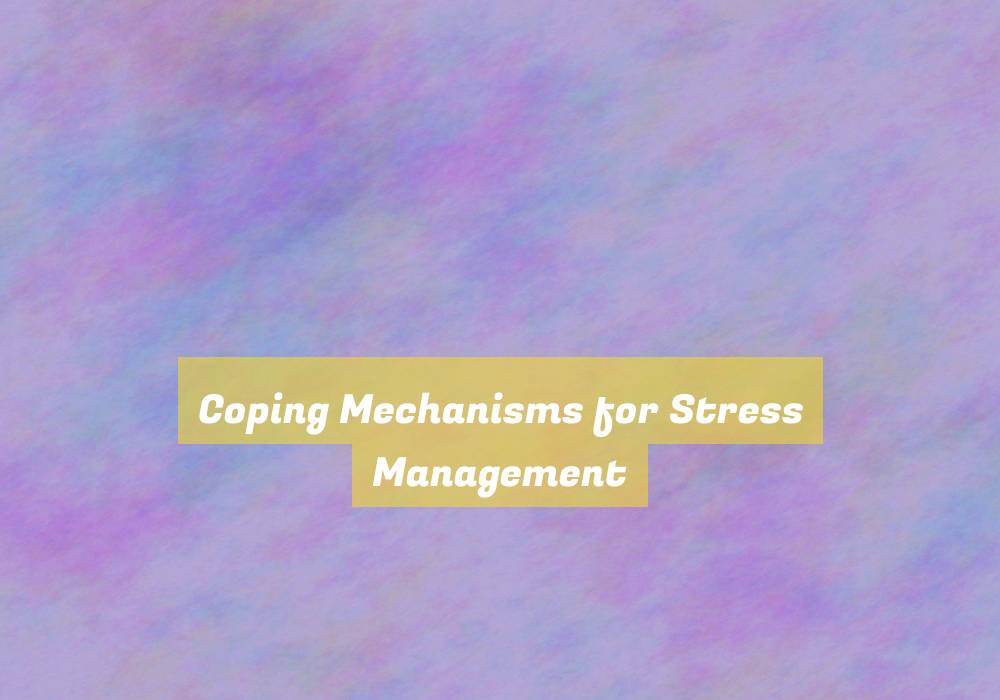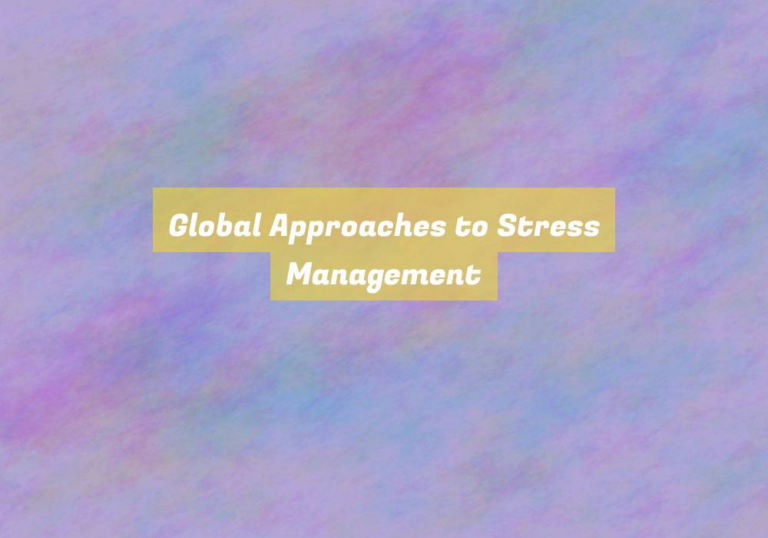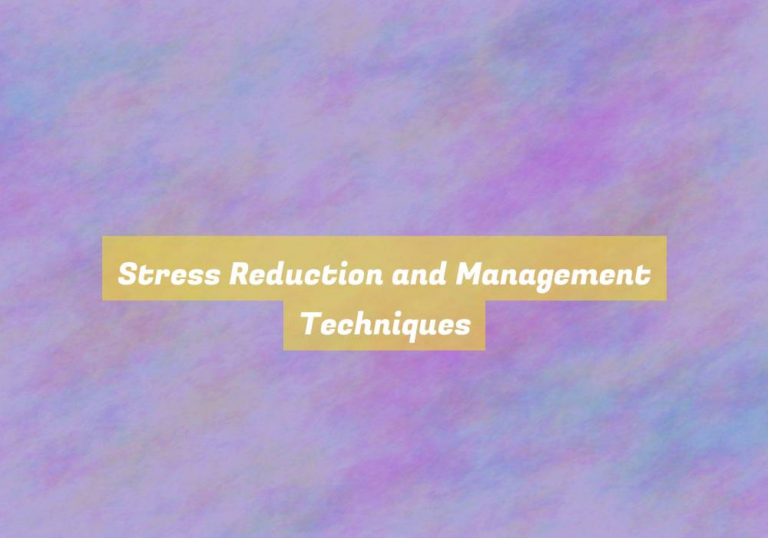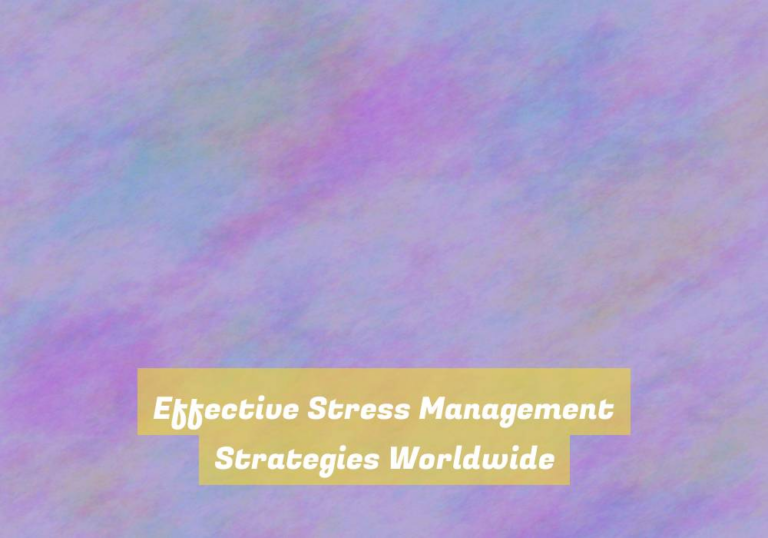Coping Mechanisms for Stress Management
You may not realize it, but stress is an inevitable part of life. ItG??s how you manage it that makes all the difference. There are numerous coping mechanisms that can help you navigate through the ups and downs, and you might be surprised by just how effective they can be.
From mindfulness and meditation to physical activity and exercise, the options are varied and diverse. But what really works for you?
Stay tuned to discover practical and proven methods to keep stress at bay and enhance your well-being.
Mindfulness and Meditation
If youG??re looking to reduce stress and improve your overall well-being, practicing mindfulness and meditation can be highly beneficial.
Mindfulness involves being fully present in the moment, acknowledging and accepting your thoughts and feelings without judgment. By focusing on the present, you can let go of worries about the future or regrets about the past, which can significantly reduce your stress levels.
Meditation, on the other hand, is a practice that involves training your mind to promote relaxation, build internal energy, and develop compassion. By incorporating meditation into your daily routine, you can learn to control your thoughts and achieve a sense of calm and inner peace.
Incorporating mindfulness and meditation into your daily life can have numerous benefits for your mental and physical well-being. Research has shown that regular practice can reduce symptoms of anxiety, depression, and chronic pain, as well as improve sleep quality and overall mood.
Additionally, mindfulness and meditation can enhance self-awareness and improve your ability to focus and concentrate, ultimately leading to a more balanced and stress-free life.
Physical Activity and Exercise
Engaging in regular physical activity and exercise is essential for effectively managing stress and promoting overall well-being. When you engage in physical activity, your body releases endorphins, which are natural mood lifters. These endorphins help reduce stress and anxiety, leaving you feeling more relaxed and positive.
Whether itG??s a brisk walk, a yoga session, or a gym workout, any form of physical activity can help clear your mind and improve your mood.
Regular exercise also promotes better sleep, which is crucial for managing stress. When you get an adequate amount of quality sleep, your body and mind are better equipped to handle daily challenges. Additionally, exercise helps in improving your overall physical health, which can have a positive impact on your mental well-being. Feeling stronger and more energetic can enhance your confidence and resilience in coping with stressors.
Incorporating physical activity into your daily routine doesnG??t have to be overwhelming. Start with small, achievable goals and gradually increase the intensity and duration of your workouts. Remember, even a little bit of physical activity each day can go a long way in helping you manage stress and improve your overall well-being.
Social Support and Connection
Regular exercise not only contributes to better sleep and physical health but also plays a crucial role in enhancing your social support and connection, which is vital for effective stress management.
Engaging in physical activities such as group sports, fitness classes, or even walking with a friend can provide opportunities for social interaction and support. This social connection can serve as a buffer against the negative effects of stress, allowing you to share experiences, seek advice, and feel a sense of belonging.
Additionally, spending time with friends and loved ones can offer a welcome distraction from daily stressors, providing a chance to relax and enjoy the company of others. Building and maintaining strong social connections can also contribute to a greater sense of purpose and belonging, which are important factors in overall mental well-being.
Whether itG??s through joining a club, attending social gatherings, or simply reaching out to a friend, prioritizing social support can significantly enhance your ability to effectively manage and cope with stress.
Time Management and Prioritization
To effectively manage stress, prioritize your tasks and activities by utilizing time management techniques and identifying your most important priorities.
Start by creating a to-do list, organizing tasks based on urgency and importance. This will help you allocate your time efficiently. Consider using tools like calendars or apps to schedule specific time slots for tasks.
Break down larger tasks into smaller, manageable steps to avoid feeling overwhelmed. Learn to say no to non-essential activities, allowing you to focus on what truly matters. Be realistic about what you can accomplish in a day and set achievable goals.
When prioritizing, consider the impact and consequences of each task. This will guide you in determining which tasks should take precedence. Remember to delegate tasks when possible, as teamwork can lighten your workload.
Lastly, donG??t forget to include self-care activities in your schedule. Taking time for yourself is crucial for maintaining a balanced and healthy lifestyle.
Conclusion
In conclusion, finding effective coping mechanisms for stress management is essential for maintaining your well-being.
By practicing mindfulness, engaging in physical activity, seeking support from others, and managing your time effectively, you can reduce the impact of stress on your life.
Remember to prioritize self-care and make use of these coping strategies to improve your overall mental and physical health.
ItG??s important to take control of your stress and find healthy ways to manage it.







